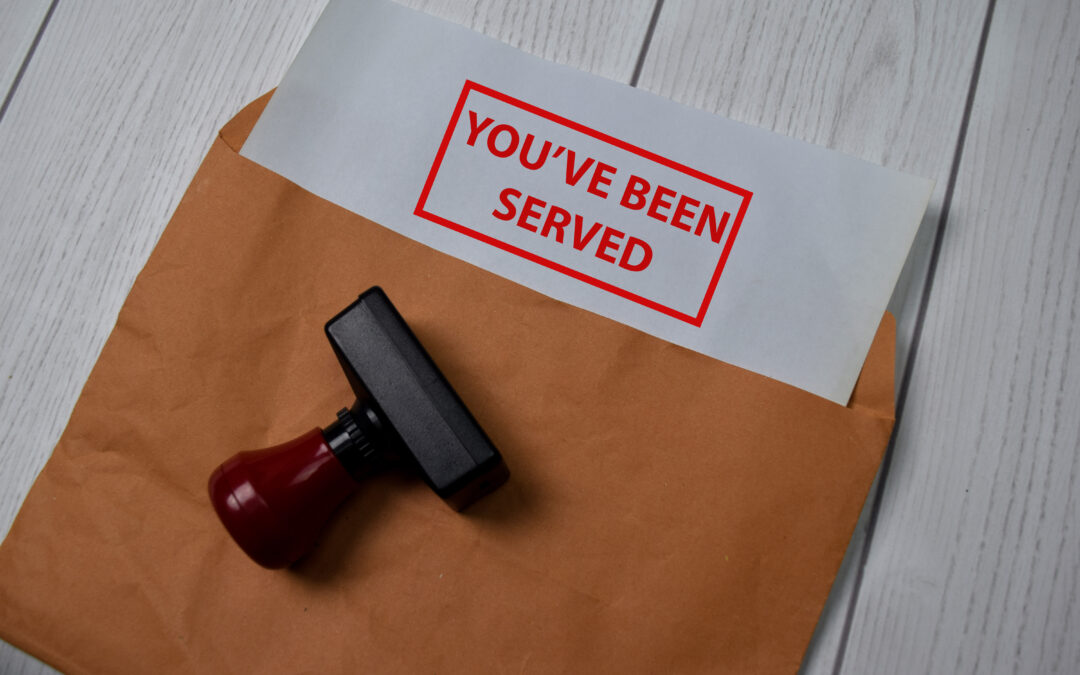If a debt of yours remains unpaid, it can become a collections lawsuit in Connecticut State Court, usually in the county you live in. This means that a lawsuit gets served on you by a state sheriff or marshal. They can serve you at home, work, directly to you personally, or usually they will just leave it at your home. There are numerous legal rules on when, where and how to properly serve or initiate a lawsuit, but the usual suit is just left somewhere near your last known address. Hundreds of “unfound” lawsuits go to judgment in favor of creditors every year. After “dropping off” the writ or serving you personally, all other actions come through the mail. It is a very silent process, so you need to act promptly, and get good, free legal advice. While improper service of the lawsuit can always become a solid defense, the burden is on you to prove it and know the rules of how it should be served.
The purpose of a collection lawsuit is to create a Judgment or Court Order in favor of your creditor. A court judgment enables the creditor to execute against your wages and assets. By filing the collections lawsuit and processing it to completion, the creditor obtains an Order of the Court for a debt amount that allows the creditor to use the power of the legal system to collect against you.
Approximately 8,000 collection lawsuits were filed in Connecticut last year alone.
If You Ever Receive a Debt Lawsuit, Don’t Ignore It
Collection lawsuits that aren’t defended always result in a Judgment in favor of the creditor, whether they are right or wrong. Failure to defend collection lawsuits is the most common mistake made by uninformed Connecticut consumers. If you don’t defend and appear, no one will be in Court to present your side of the case, and the Judge will never hear your story. Incorrect debt orders become Court Judgments every week in courts throughout Connecticut and once a judgment has been entered against you, it is extremely difficult to undo that judgment.
Receiving a lawsuit is an important event that should always be a sign that you need to seek legal assistance from someone who knows how to protect your legal rights. Lawsuits are often an indication that despite all efforts to try to solve your financial problems, whatever you’ve done hasn’t worked. We all want to be responsible, to pay our bills and stay away from Courts, but sometimes it just can’t be solved alone. Fortunately, there are laws and specialized lawyers that protect you and preserve your opportunity to have a solid financial fresh life free from collection calls, lawsuits, and Court Judgments.
A lawsuit is a sign that you need to seek professional assistance. Don’t be embarrassed – We all need help at one time or another.
ENFORCING JUDGMENTS
By turning a regular unsecured debt, like a credit card bill or a medical bill, into a Judgment, the creditor now gets the right to use a variety of strong Connecticut State laws to collect against you by enforcing the Judgment of the Court with no further notice to you. This essentially empowers the creditor to use the legal system to collect through three major avenues:
Wage Garnishments: This is a process whereby a Court Judgment is served on your employer, (or any third party) forcing them to pay money you’ve earned to the creditor to satisfy the Judgment in part or in full. Wage garnishments are embarrassing, expensive and highly detrimental to your ability to carry on with life’s regular expenses. To learn more about avoiding, stopping or reversing wage garnishments, call us now at 203-230-2233 or click here to read more about stopping automatic deductions.
Levies and Attachments: This occurs when the creditor reaches your assets to secure and enforce their Judgment without any notice to you. The most common form of attachment is a bank execution. This means that a creditor sends a sheriff or marshal to seize your bank account or any bank account where your name appears with someone else. Wage garnishments, attachments and bank seizures are embarrassing and prevent you from paying regular monthly bills or have hope for a solid financial future.
Liens: Creditors with a Court Judgment are entitled to lien your house by simply filing a copy of the Court Order on the Land Records in the town in which you live without notice to you. This means that your home is now liable for the debt in full with interest and costs, even far into the future. Every year, thousands of liens are filed on Connecticut homes, all of which could have been avoided with your attention and specialized legal assistance.
All of these are methods by which regular unsecured debts become Court Judgments secured on your assets: wages, bank accounts or real estate. It’s an unpleasant, expensive, and very wasteful process, especially since you will bear all the added costs of expenses.
Fortunately, these problems can be avoided, defended or even reversed by a specialized debt relief and bankruptcy professional at the Law Offices of Neil Crane. We’ve spent more than 35 years fighting for the rights of clients to regain their financial future. Call us today! 203-230-2233


